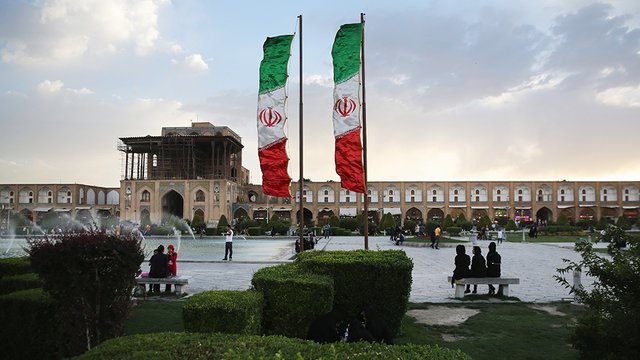IAEA strikes deal with Iran on monitoring of nuclear programme
The UN atomic watchdog reached an agreement with Iran on Sunday allowing the Agency access to surveillance cameras inside its atomic facilities.

During “constructive” talks with Vice-President of the Iranian atomic energy association, Mohammad Eslami, it was agreed that new memory cards would be installed into cameras monitoring the country’s nuclear programme, the IAEA said in a joint statement.
It has also been agreed the cameras can be serviced. No further details were given apart from that the two sides had reached an agreement on how this was to be done.
Whilst a sign of “cooperation and mutual trust,” between the parties, the statement said the existing cards showing Iranian activity at its main nuclear sites will be sealed and kept in Iran.
Formal censure
The agreement could avert the formal censure of Iran by the IAEA’s 35-nation Board of Governors at a meeting in Vienna this week, for failing to co-operate with an investigation into traces of uranium found at undeclared nuclear sites.
The resolution risked ending the prospect of reviving talks between Iran and the United States on reviving the 2015 Iran nuclear deal.
In 2018, President Donald Trump withdrew the US from the deal, known formally as the Joint Comprehensive Plan of Action” (JCPOA), which sets out rules for monitoring Iran’s nuclear programme and paves the way for the lifting of UN sanctions.
In July 2019, Iran reportedly breached its uranium stockpile limit and announced its intention to continue enriching uranium, posing a more serious proliferation risk. On 15 February, Iran announced that it would stop implementing “voluntary transparency measures” in the Iran nuclear deal, along with other arrangements in Iran’s Safeguards Agreement.
Compliance issues
On Monday, during the opening of the IAEA Board of Governors meeting in Geneva, Mr. Grossi recalled that up to 23 February 2021, the agency had verified and monitored the implementation by Iran of its nuclear-related commitments under the JCPOA.
However, since that date, these activities have been seriously undermined as a result of Iran’s decision to stop the implementation of its nuclear-related commitments, including the Additional Protocol.
“The Agency’s confidence that it could maintain continuity of knowledge had been declining over time and had recently significantly further declined. This confidence could continue to decline unless the situation were immediately rectified by Iran,” he said.
He said that, despite the advancements, he remains “deeply concerned that nuclear material has been present at undeclared locations in Iran and that the current locations of this nuclear material are not known to the Agency.”
Talks ongoing
Mr. Eslami said Iran “will continue talks on the sidelines” of the IAEA meeting in Vienna this week and added that Mr. Grossi would visit Tehran again “in the near future” to discuss technical issues on changing the memory cards of the surveillance cameras.
“What matters to us is building trust and having mutual trust,” he added. On his return to Vienna, Mr. Grossi said while the agreement was a “stopgap” it would be implemented in a few days because the IAEA was “getting to the point where we needed immediate rectification”.
He added: “We managed to rectify the most urgent issue – the imminent loss of knowledge we were confronted with until yesterday. Now we have a solution.”
The IAEA chief said there would be further meetings at higher levels: “Nothing will be sidelined and nothing hidden,” he said, in reference to other long-standing issues, including unexplained nuclear particles found in some sites.
The issue of DPR Korea
Meanwhile, the Agency continues to monitor the Democratic Republic of Korea’s (DPRK) nuclear programme, using opensource information including satellite imagery.
On Monday, according to news reports, DPRK, more commonly known as North Korea, announced that it had successfully launched new long-range cruise missiles, which represents its first missile test in around six months. Cruise missiles are not banned, according to UN Security Council resolutions, which prohibit the testing or development specifically of ballistic missiles.
For Mr. Grossi, the countries’ nuclear activities “continue to be a cause for serious concern.”
He pointed to new indications of the operation of the 5MW(e) reactor and the Radiochemical Laboratory calling them “deeply troubling.” For him, the continuation of programme “is a clear violation of relevant UN Security Council resolutions and is deeply regrettable.”
He asked the country to comply fully with its obligations under relevant UN Security Council resolutions and assured that the Agency continues ready to play and “essential” role in verifying the nuclear programme.